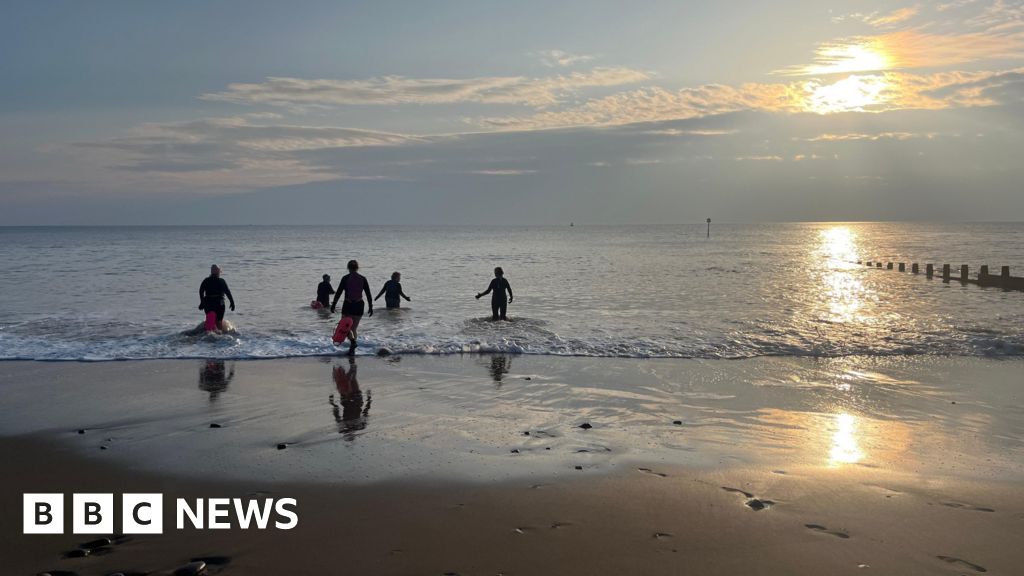Swimmers in Devon have been warned about the dangers of open water swimming, including cold water shock.
Nearly 200 people died from accidental drownings in the UK last year, with 28 in May alone, according to the National Water Safety Forum (NWSF).
The NWSF said cold water shock was “the body’s response to sudden immersion in cold water, leading to an involuntary gasp, rapid breathing and temporary loss of swimming ability”.
Mike Tipton, the organisation’s chairman, said new swimmers should make sure they were “fit and healthy enough” to do open water swimming and go with a “recognised group in a safe location”.
Mr Tipton, who told BBC Devon somebody “died around water every other day… [a] really sobering number”, said people sometimes forgot sensible precautions, such as limiting swims to 10 minutes, going in gradually and swimming parallel to the shore.
He said the drop in temperature could increase the heart rate and cause a gasp which could allow sea water into the mouth and start the drowning process.
He added that said the initial shock passed within 30 to 90 seconds, so entering the water gradually could reduce the risk.
The NWSF said drownings often rose when air temperatures increased, with unseasonably high temperatures in May over the past few years causing a spike in spring.
While the air temperature got hotter, open water temperatures often stayed much colder, it added.
Water below 16C (60.8F) was considered dangerous for cold water shock, the NWSF said.
Many inland waters stayed below this temperature all year and sea temperatures are also likely to be colder this time of year.
The NWSF’s safety campaign, Respect the Water, offers advice on what do if someone is seen struggling in the water:
- Call 999 to get help
- Tell the struggling person to float on their back
- Throw them something that floats, such as a life ring, inflatable toy or bottle
If anyone is in the water and suffers cold water shock, they should:
- Tilt their head back with their ears submerged
- Try to relax and breathe normally while they moved their hands to help stay afloat
- Once the effects of the cold water shock passed, shout for help or swim to safety if they could
Read full article at source
Stay informed about this story by subscribing to our regular Newsletter



